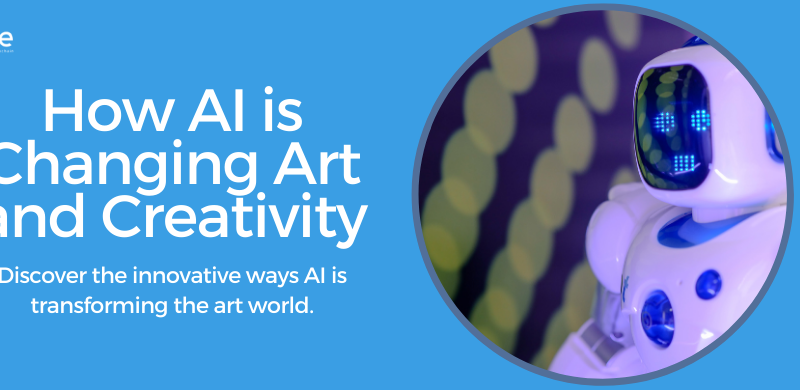A computer system or robot with Artificial intelligence (AI) can be programmed to perform certain tasks. which carries out the routine tasks carried out by intelligent beings. In efforts to develop artificial intelligence (AI) systems, the phrase is frequently used. These include human abilities such as reasoning, meaning-finding, generalization, and experience-based learning. It has been established that computer systems can be programmed to perform highly complex tasks.
However, despite constant advancements in memory capacity and processing speed, there are presently no computer programs that can match allows people to make across a variety of tasks. Or who require a great deal of background knowledge. On the other hand, some programs are able to carry out some tasks at a level that is comparable to that of skilled human professionals.
What Are the Forms of AI?
Artificial intelligence comes in a variety of forms.
Reactive AI: When reacting to a set of inputs, reactive AI uses machine learning algorithms to optimize its outputs. For instance, chess AIs are defensive systems that maximize the most effective approach to winning the game. Oftentimes, reactive AI is rather fixed and unable to develop or change in response to changing conditions. Therefore, given identical inputs, it will result in the same output.
Limited memory AI: restricted memory AI can inform itself based on fresh observations or data or adapt to previous experience. For instance, self-driving cars can “read” the road, adapt to peculiar situations, and even “learn” from past mistakes.
Theory-of-mind AI: Theory-of-mind In addition to having extensive learning and memory capacities, AI is fully adaptive. Advanced chatbots that can pass the Turing Test, which would lead a person to believe the AI was a real person, are an example of this type of AI. Though these AI are outstanding and cutting edge, they do not have consciousness.
Self-aware AI: As the title suggests, self-aware AI develops sentience and becomes conscious of its existence. Some experts believe that an AI won’t ever achieve consciousness or “life,” keeping this concept confined to science fiction.
The Benefits and Drawbacks of artificial intelligence
A program that has the capacity for learning and thought is said to have artificial intelligence. Anything that involves a program carrying out a task that we would typically believe a human would carry out qualifies as artificial intelligence.
Let’s start with artificial intelligence’s benefits. Artificial intelligence development services and AI app development services enable businesses to provide an immersive customer experience and intelligent interactions.
Advantages/Benefits of Artificial Intelligence
1. A decrease in human error
One of the main benefits of artificial intelligence is its capacity to significantly lower errors and enhance accuracy and precision. AI bases each decision it makes on a particular set of algorithms and information that has already been collected. These errors can be removed with proper coding. Artificial Intelligence software development company provides state-of-the-art AI development services that help companies automate their processes and quickly overcome tough business challenges.
2. No Risks
By giving those tasks to AI robots, humans can prevent many risks, which is another important advantage of AI. Steel-bodied computers are tough by nature and can withstand harsh conditions, whether they are disarming bombs, going into space, or diving to the bottom of the oceans. In today’s digital world, Hire artificial intelligence developers for your business.
Now click here for risk-free with AI

3. Always available
People only spend three to four hours per day working productively, according to a number of studies. To maintain a balance between their personal and professional lives, people also need breaks and time off. AI, on the other hand, is able to work continuously without stopping. They can believe quickly and efficiently while multitasking, unlike humans. They can even handle challenging repetitive tasks with ease when using AI algorithms.
4. Digital support
Digital assistants are used by some very technologically advanced businesses to interact with customers, negating the need for human staff. Digital assistants are widely used by websites to deliver content that users have requested.
They are available for discussion regarding our search. Some artificial intelligence (AI) tools are designed in a way that makes distinguishing between speaking with a chatbot and a human difficult.
We are all aware that companies have a support team that must respond to the queries and worries of the clients. AI can be used by businesses to develop a chatbot as well as a voice bot that can respond to all of their client’s inquiries. Hire AI developers is a good option for growing your business.
5. New innovations
AI is the inspiration behind some developments that will help humans solve the majority of difficult problems in almost every field. You also like to try new innovations, don’t worry we are always ready to help you.
For instance, recent developments in AI-based technology have made it possible for medical professionals to identify breast cancer in a woman at such an earlier stage.
6. Dispassionate judgments
Whether we like it or not, people are led by their emotions. AI is unemotional and approaches issues in a very practical and logical manner, on the other hand. The enormous advantage of artificial intelligence is its objectivity, which enables more accurate decision-making.
7. Carry out regular tasks
As part of everyday work, we will perform numerous repetitive tasks, such as proofreading documents for errors and mailing thx notes, among other things. Artificial intelligence may be used to effectively automate these mundane tasks and even remove “boring” tasks from people’s jobs so they can concentrate on being more creative.
Example: In banks, obtaining a loan frequently necessitates multiple document checks, which is time-consuming for the bank’s owner. The owner can expedite the report verification process using AI Cognitive Automation, which will be advantageous to both the clients and the owner.
8. Applications Everyday
Today, the internet and mobile devices are necessary for our daily activities. We use many different apps, such as Google Earth, Alexa, Siri, Cortana on Windows, and OK Google, as well as other tools like taking selfies, making calls, and responding to emails. Using a variety of AI-based methods, we can also predict the weather for the present day and the coming days.
![]()
Disadvantages/Drawbacks of Artificial Intelligence
1. High Prices
The ability of a machine to simulate human intelligence is an impressive accomplishment. It can be very expensive and takes a lot of time and resources. AI is quite expensive because it requires the newest software and hardware to function to stay current and meet requirements.
2. No originality
An important flaw in AI is its inability to develop creative, original thought. AI can learn over time using pre-fed data and prior experiences, but it is not capable of taking novel approaches. A prime example is the Forbes earnings report-writing robot Quill. These reports only include data that has already been provided to the bot. The fact that a bot can make an article on its own is impressive, but it lacks the gentle connection found in other Business insider articles.
3. Unemployment
A robot is one example of artificial intelligence in use, and it is replacing jobs and raising joblessness (in a few cases). Due to chatbots and robots replacing humans, some argue that there is still a chance of unemployment.
For example, in some more technically advanced countries like Japan, robots are frequently used to replace personnel in manufacturing businesses. This was not always the case, but even so, it also gives people more opportunities to work and sometimes even replaces them to boost productivity.
4. Encourage Passivity
AI applications automate the majority of tedious and repetitive tasks. As a result of not having to memorize information or solve puzzles to complete tasks, we use our brains less frequently.
5. No morals
It can be challenging to incorporate important human traits like ethics and morality into an AI. Many people fear that as AI develops quickly, it will one day completely annihilate humanity.
6. Emotionless
From an early age, we are taught that neither machines nor computers have emotions. Since people work in groups, managing teams effectively is crucial to achieving objectives. However, it is undeniable that when used properly, robots outperform people, but it is also important that human connections, the cornerstone of teams, cannot be changed by computers.
7. Nothing Changes
Artificial intelligence is a technology that cannot be created by humans because it is pre-programmed with knowledge and experience. AI is good at performing the same task repeatedly, but if we want any modifications or enhancements, we must manually change the codes. AI can store an infinite amount of data, but it cannot be accessed or used in the same way as human intelligence.
If a machine is asked to do anything other than the tasks for which it was designed or programmed, it frequently fails or produces worthless results, which can have serious negative effects. As a result, we are still unable to produce anything typical.
Knowing AI’s benefits and drawbacks, you can conclude that it has enormous potential to improve the quality of life for people everywhere. Making sure that the development of AI doesn’t spiral out of control will be the most crucial task for humans. Artificial intelligence has both disputed advantages and disadvantages, but there is no denying that it is having a significant impact on the world economy. It keeps expanding every single day, promoting business sustainability. This undoubtedly highlights the need for AI literacy as well as upskilling to succeed in many new jobs.
You can jumpstart your career in artificial intelligence and get ready for one of the most exciting jobs in the world with the help of Simplilearn’s Artificial intelligence And Machine learning certificate program, AI program, or Genius in Artificial Intelligence. Both fundamentals of AI and more complex topics like deep learning networks, natural language processing, and reinforcement learning are covered in this course. Start taking this course right away to launch your dream AI career.
Artificial intelligence has undergone significant development, and the results are clear.
AI is a versatile tool used in a wide range of industries to improve decision-making, boost productivity, and get rid of repetitive tasks.
Here are a few examples of real-world applications for artificial intelligence.

Artificial Intelligence Applications or AI in various fields
1. Healthcare
Healthcare is one of the industry sectors where AI has had the most significant effects.
A device as popular as a Fitbit or an iWatch gathers a lot of data, including the user’s sleep patterns, calories burned, heart rate, and much more, which can aid in early detection, personalization, and even the diagnosis of diseases.
When equipped with AI, this device can easily control and alert users to unusual trends. The physician who can use it to conduct research and make decisions will find it extremely helpful because it can even timetable a meeting with the nearest doctor on its own.
And has been used to anticipate ICU transfers, enhance clinical workflows, and even identify a patient’s risk of acquiring infections while in the hospital.
2. Automobile
The importance of AI could be understated at this point when cars are transitioning from being mechanical machines with an engine and a chassis to being intelligent machines controlled by software.
To reach the aims of self-driving cars, Tesla’s Autopilot has been the front-runner. Machine learning algorithms use data collected from all Teslas currently operating on the road. The system then compares and executes the evaluation of both chips if their input is identical.
It is common to see AI in action in autonomous vehicles that use machine learning as well as a vision to safely navigate through traffic or in robots that produce the initial nuts as well as bolts of a vehicle.
3. Surveillance
Face recognition tools that can be used for security and surveillance have been made possible thanks to AI.
As a consequence, this gives the systems the ability to watch the video in real-time and could be a revolutionary advancement for public safety.
Since manual CCTV camera monitoring necessitates constant human interaction, it is prone to mistakes and weariness. Automated and available around-the-clock, AI-based surveillance offers real-time insights.
According to a report from the Carnegie Endowment for Foreign Relations, at least 75 of the 176 nations use AI tools for surveillance.
400 million Cameras are already operational throughout the nation, powered by AI technologies, mainly face recognition.
4. Social Media
Don’t we all adore social media?
Social media is more than just a way to connect with people and express oneself. It subtly molds our temperament, ideologies, and choices.
All of this is because of the synthetic intelligence tools, which quietly operate in the background, displaying content that we “might” like and promoting goods based on our search as well as browsing histories.
For instance, Instagram recently disclosed how it has utilized AI to tailor the Explore Tab content.
This facilitates social media advertising due to its unmatched capacity to deliver paid advertisements to marketplace users based on extremely precise demographic and behavioral targeting.
Did you know that we also have artificial intelligence (AI) tools that will create Facebook or Instagram ads for us? AI in social networking sites also offers marketers the ability to monitor and analyze each move their customers make.
5. Entertainment
With the introduction of online services like Netflix as well as Amazon Prime, the show business heavily depends on the data gathered by the users.
This facilitates the generation of recommendations based on previously viewed content. This is done to provide accurate suggestions as well as to produce content that the majority of viewers will find appealing.
Since new content is produced every minute, it is very challenging to categorize it and make it easier to search for.
Videos’ contents are examined frame by frame by AI tools, which then identify objects and assign tags to them. Additionally, AI is assisting media companies in making strategic decisions.
6. Education
Different issues will be resolved by the application of AI in the education field as well.
Some of them include content retention strategies, automated marking software, and recommend needed improvements.
One such use is the case-based simulations provided by the Harvard graduate school.
7. Space Exploration
Artificial intelligence (AI) technologies are designed to lessen the risk to human life when it explores the vast expanses of the uncharted and unrevealed universe, and it’s a very risky endeavor for astronauts to undertake.
As a result, the use of AI has made unmanned human spaceflight missions such as the Mars Rover possible.
Numerous exoplanets, stars, galaxy clusters, and most recently two new planets in our solar system have all been found thanks to it.
Additionally, NASA is utilizing AI applications for space research to automate image analysis, create autonomous spacecraft that can avoid space debris without human involvement, and build communication networks that are more effective and distortion-free thanks to an AI-based system.
8. Gaming
AI-powered computer game systems are ushering in a new era of immersive gaming experiences in other industries, including the gaming industry.
In video games, AI is used to give non-player characters (NPCs) responsive, adaptive, or intelligent behaviors that are almost human-like. Instead of computer science or decision-making, it serves to improve the gaming experience for the player.
A significant part of AI was also used in the development of video games to better cater to player preferences.
The goal of Matthew Guzdial’s group at the University of Alberta is to use AI to help video gamers design the exact game they want to play.
9. Robotics
Robots are more effective at completing tasks that were previously too complex as a result of growing progress in the field of AI.
Complete automation is frequently only possible with AI’s help because it allows the system to not only carry out the required task but also monitor, check, and enhance it without the need for human oversight.
Robots with AI can learn procedures and complete tasks completely autonomously, without the need for human assistance. This is so that repetitive tasks can be carried out quickly and with the highest level of accuracy by robots.
Robotic applications that were previously rigid have become more flexible and capable of learning thanks to AI. These advantages are anticipated to support market expansion.
10. E-Commerce
One application for artificial intelligence that has been discovered to be widely used is this one.
The use of chatbots, intelligent marketing, better customization, and other facets of E-commerce are among the areas that AI is disrupting.
One of the first sectors to adopt AI is the e-commerce sector, in which Amazon plays a significant role. With time, this might benefit from good AI use.
To provide their online customers with round-the-clock support, the e-commerce retailing industry turning to chatbots or digital assistants. Chatbots are more intuitive and improve the customer experience thanks to AI technologies that were used in their development.
Summary
We have seen the advantages and disadvantages of AI applications in various fields, in summary. Many industries are poised for radical change as a result of AI.
Although by no means exhaustive, this list represents the most likely scenarios for the near future.
Let’s just wait and see how AI affects various industries. It also provides precision in the work format and will result in better flexibility in the workplace.




